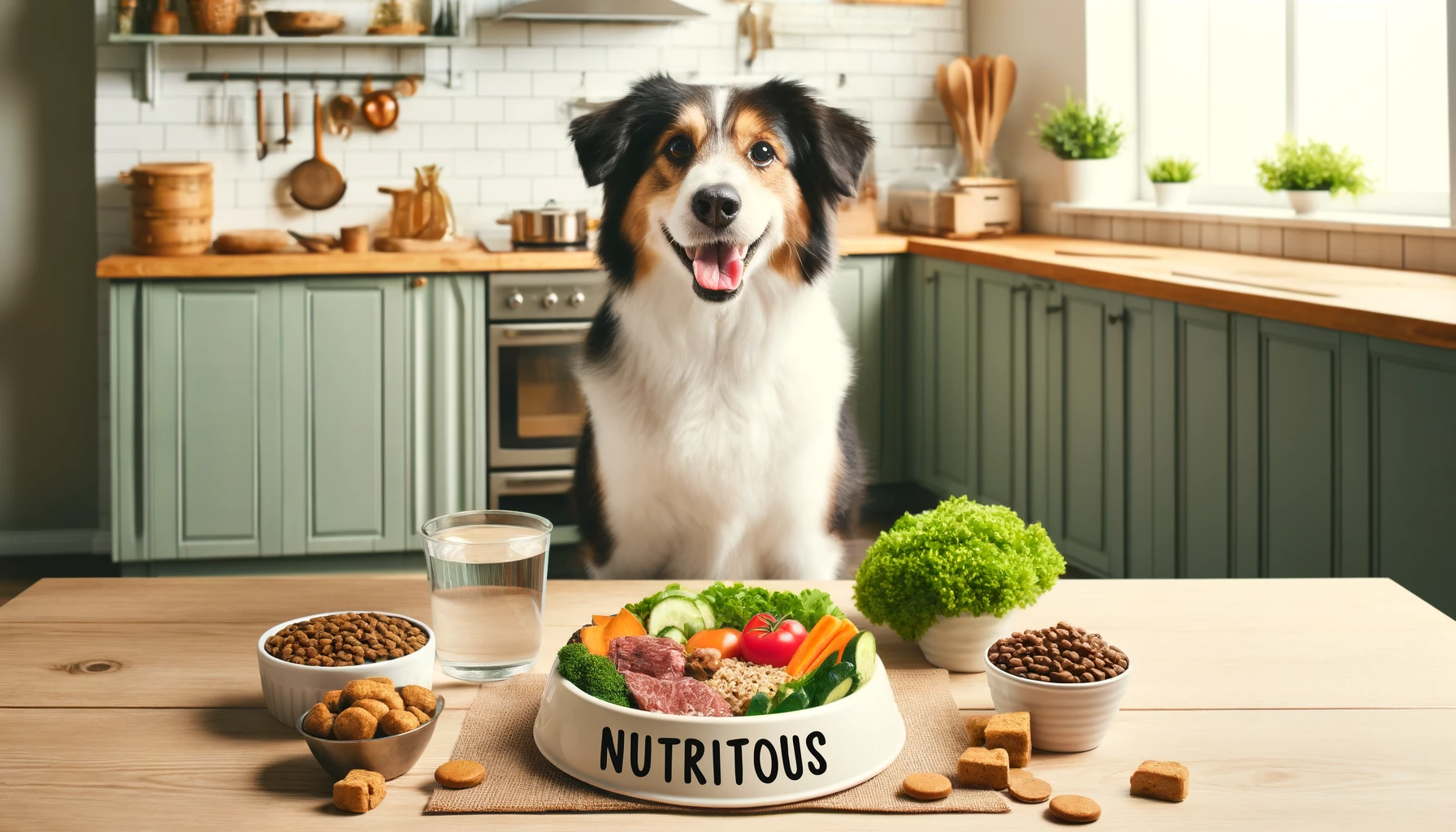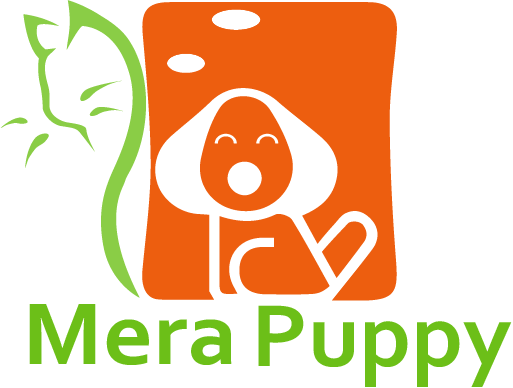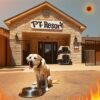- Empty cart.
- Continue Shopping
Nutritious Diet for Dogs: The Ultimate Guide for Pet Owners

Introduction
A nutritious diet for dogs is vital for their overall health, longevity, and happiness. As a pet owner, understanding what constitutes a balanced and healthy diet for your canine companion can be challenging. This guide will explore everything you need to know about providing a nutritious diet for dogs, from the essential nutrients they need to the best types of food available.
Understanding a Nutritious Diet for Dogs
Essential Nutrients for Dogs
Dogs, like humans, require a balanced diet rich in proteins, carbohydrates, fats, vitamins, and minerals. These nutrients support various bodily functions, including growth, energy production, and immune system maintenance.
The Role of Proteins
Proteins are the building blocks of your dog’s body. They are essential for muscle development, tissue repair, and overall growth. High-quality protein sources include chicken, beef, fish, and eggs.
Importance of Carbohydrates
Carbohydrates provide dogs with the energy they need for daily activities. Sources such as rice, oats, and sweet potatoes are excellent for sustaining energy levels.
Healthy Fats for Dogs
Fats are crucial for a dog’s diet, providing energy, aiding in the absorption of vitamins, and ensuring healthy skin and coat. Omega-3 and omega-6 fatty acids are particularly beneficial.
Vitamins and Minerals
Vitamins and minerals play a significant role in maintaining a dog’s health. Essential vitamins include A, D, E, and K, while important minerals include calcium, phosphorus, and potassium.
Types of Dog Food: Which is Best?
Dry Dog Food (Kibble)
Dry dog food is convenient, has a long shelf life, and is beneficial for your dog’s dental health. It is a popular choice among many pet owners.
Wet Dog Food
Wet dog food is often more palatable and can be a good option for picky eaters or dogs with dental issues. It is typically more expensive than dry food.
Raw Diet
A raw diet consists of uncooked meats, bones, and vegetables. While some owners swear by it, it requires careful preparation to ensure a balanced diet and to avoid bacterial contamination.
Homemade Dog Food
Preparing homemade dog food allows you to control the ingredients and tailor the diet to your dog’s specific needs. However, it requires knowledge of canine nutrition to ensure a balanced diet.
Grain-Free Diets
Grain-free diets have become popular, especially for dogs with allergies. However, they should be approached with caution and under veterinary guidance.
Factors to Consider When Choosing Dog Food
Age and Life Stage
Puppies, adults, and senior dogs have different nutritional requirements. Choose a diet that is appropriate for your dog’s life stage.
Breed-Specific Needs
Different breeds may have specific dietary requirements. Large breeds, for example, may need diets formulated to support joint health.
Health Conditions
Dogs with health issues such as diabetes, allergies, or obesity require special diets. Always consult with a veterinarian to determine the best diet for your dog’s health condition.
Activity Level
Active dogs require more calories and nutrients compared to less active or sedentary dogs. Adjust their diet according to their energy expenditure.
Common Dietary Mistakes to Avoid
Overfeeding
Overfeeding can lead to obesity and related health problems. Follow feeding guidelines and adjust portions based on your dog’s activity level and weight.
Inadequate Hydration
Ensure your dog has access to fresh water at all times. Proper hydration is crucial for overall health.
Ignoring Food Allergies
Food allergies in dogs can cause skin issues and digestive problems. Identify and eliminate allergens from their diet.
Human Food
Avoid feeding dogs human food, especially items toxic to them like chocolate, grapes, and onions.
Creating a Balanced Meal Plan for Your Dog
Assessing Nutritional Needs
Work with a veterinarian to assess your dog’s nutritional needs based on their age, breed, and health status.
Selecting High-Quality Ingredients
Choose high-quality commercial dog food or fresh ingredients for homemade meals. Avoid fillers and artificial additives.
Monitoring and Adjusting
Regularly monitor your dog’s weight, coat condition, and overall health. Adjust their diet as needed to ensure optimal nutrition.
Supplements for Dogs: When Are They Necessary?
Common Supplements
Common supplements include fish oil for coat health, glucosamine for joint support, and probiotics for digestive health.
Veterinary Guidance
Always consult a veterinarian before adding supplements to your dog’s diet to avoid over-supplementation and potential side effects.
The Benefits of a Nutritious Diet for Dogs
Enhanced Longevity
A balanced diet can extend your dog’s life expectancy by preventing diseases and promoting overall health.
Improved Energy Levels
Proper nutrition boosts energy levels, allowing your dog to stay active and playful.
Better Digestion
A nutritious diet promotes healthy digestion, reducing the risk of gastrointestinal issues.
Healthy Skin and Coat
Essential fatty acids and vitamins contribute to a shiny coat and healthy skin.
Strong Immune System
Vitamins and minerals are crucial for maintaining a strong immune system, helping to ward off illnesses.
FAQs
What should be the primary ingredient in dog food? The primary ingredient should be high-quality animal protein like chicken, beef, or fish.
How often should I feed my dog? Adult dogs typically need two meals per day, while puppies may require more frequent feeding.
Is it safe to feed my dog raw meat? Raw meat diets can be beneficial but require careful handling and preparation to prevent bacterial contamination.
Can dogs be vegan? Dogs are omnivores, and while they can survive on a vegan diet, it requires careful planning and supplementation to ensure all nutritional needs are met.
What are the signs of food allergies in dogs? Common signs include itching, skin rashes, ear infections, and gastrointestinal issues.
How can I transition my dog to a new diet? Gradually mix the new food with the old food over a period of 7-10 days to allow your dog’s digestive system to adjust.
Conclusion
Providing a nutritious diet for dogs is one of the most important responsibilities of a pet owner. A well-balanced diet tailored to your dog’s specific needs can enhance their quality of life and longevity. Always consult with a veterinarian to ensure your dog receives the best possible nutrition.
Whiskas Adult (1+ Years) Wet Cat Food, Tuna in Jelly, 80g, Pack of 14, Hydrating Food Made With Real Fish, 100% Complete & Balanced Nutrition for Adult Cats
₹665.00 (as of April 17, 2025 08:55 GMT +00:00 - More info)Pedigree Puppy Wet Dog Food, Chicken & Liver Chunks in Gravy, 70 g (Pack of 15), Made with Real Meat, 100% Complete & Balanced Meal for Puppies
₹561.00 (as of April 17, 2025 08:55 GMT +00:00 - More info)Amazon Basics Scoopable Smart White Bentonite Scented Cat Litter | 10 Kg | 5 Kg X 2 Packs | Organic | Bentonite From Turkey | Dust-Free | Lavender Fragrance
₹569.00 (as of April 17, 2025 08:55 GMT +00:00 - More info)Apple MacBook Air (13-inch(33cm), 8GB RAM, 128GB Storage, 1.8GHz Intel Core i5) - Silver
Now retrieving the price.




























[…] surprising, if not outright impossible. However, videos and anecdotes have emerged from various pet owners witnessing this strange yet consistent […]
[…] Pet owners are investing more than ever in their furry companions’ health, and skin care is no exception. There are several reasons for this increasing demand: […]